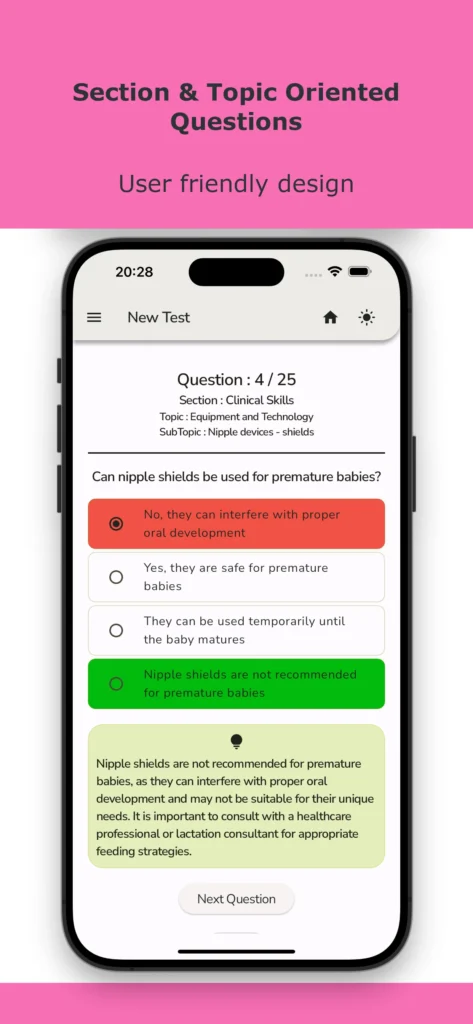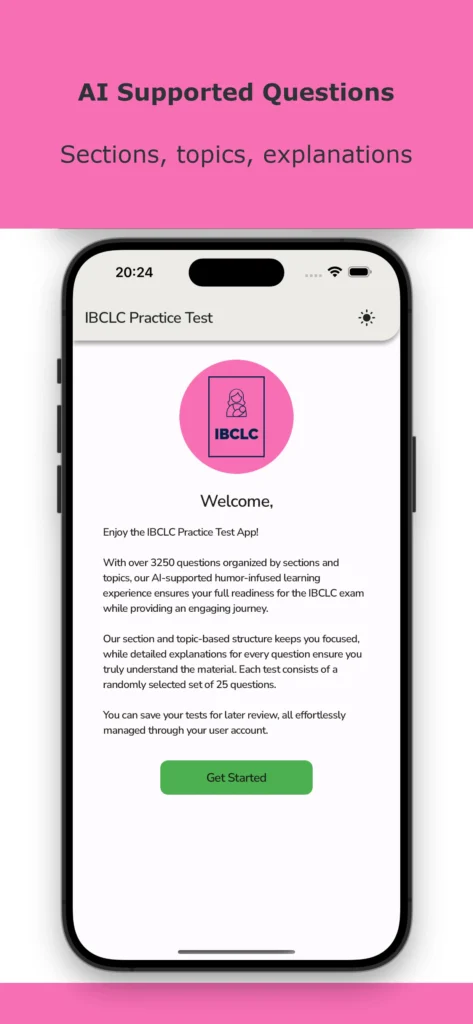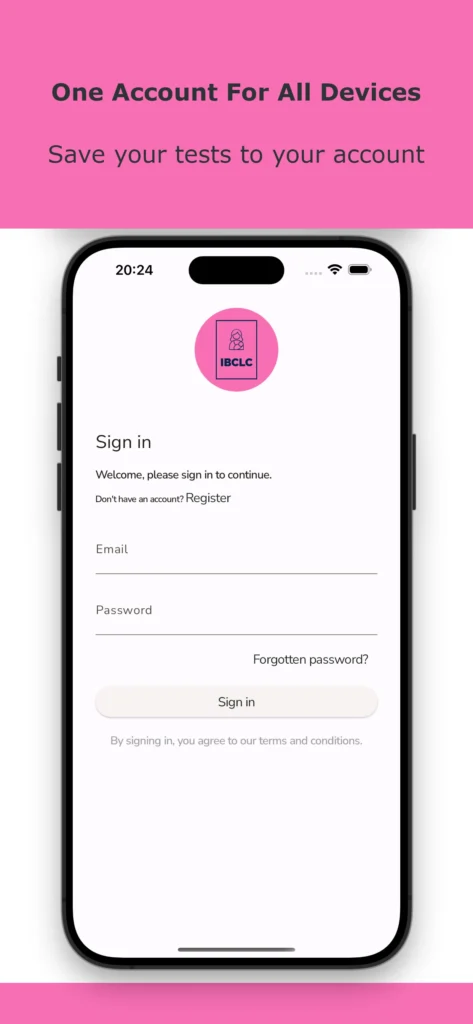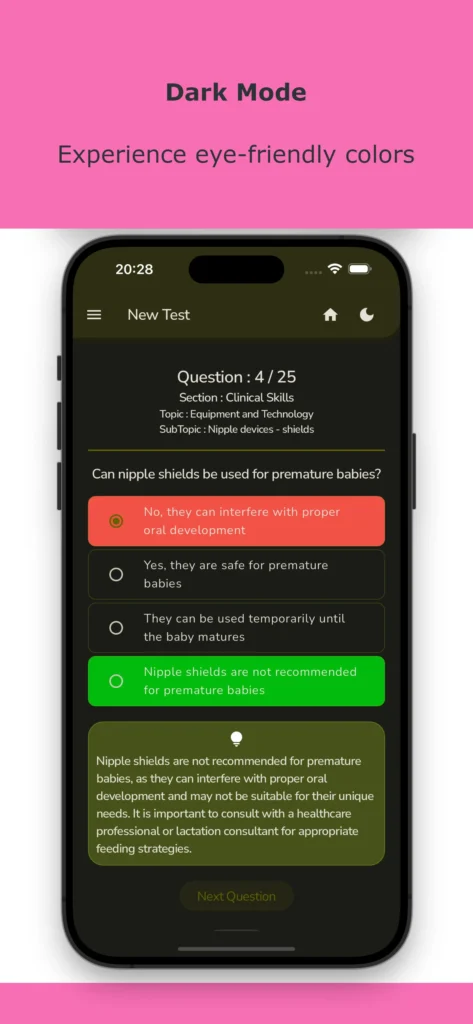Introduction to IBCLC
What Does IBCLC Stand For?
IBCLC stands for International Board Certified Lactation Consultant. An IBCLC is a healthcare professional who specializes in providing expert lactation support and guidance to breastfeeding families. They are highly trained and have extensive knowledge in the field of lactation and breastfeeding.
What Does an IBCLC Do?
An IBCLC plays a crucial role in supporting and promoting breastfeeding. They work with individuals and families to address any breastfeeding challenges or concerns, provide education and counseling, and offer evidence-based solutions to ensure successful breastfeeding experiences.
Requirements to Become an IBCLC
Becoming an IBCLC requires a combination of education, clinical experience, and passing a comprehensive exam. The requirements include:
- Completion of specific lactation education courses
- Hands-on clinical experience in providing lactation support
- Completion of a minimum of 90 hours of lactation-specific education
- Accumulation of a minimum of 1000 hours of supervised clinical practice
- Passing the IBCLC exam
How Long Does It Take to Become an IBCLC?
The time it takes to become an IBCLC can vary depending on individual circumstances. On average, it can take around 2-5 years to complete the necessary education, gain clinical experience, and pass the exam. It is important to note that the journey to becoming an IBCLC requires dedication, commitment, and a passion for supporting breastfeeding families.
How Much Does an IBCLC Make?
The salary of an IBCLC can vary depending on factors such as location, experience, and work setting. According to the International Lactation Consultant Association (ILCA), the average annual salary for an IBCLC ranges from $50,000 to $80,000. However, it is important to note that these figures can vary and may be influenced by various factors.
How to Apply for the IBCLC Exam
To apply for the IBCLC exam, individuals must meet the eligibility requirements set by the International Board of Lactation Consultant Examiners (IBLCE). The application process involves submitting documentation of education, clinical experience, and lactation-specific education. Once the application is approved, candidates can schedule their exam.
Passing Score for the IBCLC Exam
The passing score for the IBCLC exam is determined by the IBLCE. The exact passing score may vary from year to year, as it is based on the performance of the candidates who take the exam. It is important for candidates to thoroughly prepare for the exam by studying the relevant material and seeking additional resources and support.
Continuing Education and Recertification
IBCLCs are required to recertify every five years to maintain their certification. This involves accumulating Continuing Education Recognition Points (CERPs) through various educational activities, such as attending conferences, workshops, and online courses. IBCLCs can also earn free CERPs by participating in events like Free CERPs for IBCLC Day, which is held annually.
Conclusion
IBCLCs play a vital role in supporting breastfeeding families and promoting successful breastfeeding experiences. Their expertise and knowledge in lactation make them valuable resources for individuals seeking guidance and support. Becoming an IBCLC requires a combination of education, clinical experience, and passing a comprehensive exam. It is a rewarding profession that allows individuals to make a positive impact on the lives of breastfeeding families.
How to Become an IBCLC
Requirements for Becoming an IBCLC
If you’re passionate about helping mothers and babies with breastfeeding, becoming an International Board Certified Lactation Consultant (IBCLC) may be the right path for you. To become an IBCLC, you need to meet certain requirements:
- Education: You must complete lactation-specific education, which includes a minimum of 90 hours of coursework in lactation and breastfeeding.
- Clinical Experience: You need to gain clinical experience by providing lactation support to breastfeeding families. This can be done through internships, volunteer work, or paid positions.
- Health Sciences Education: You must have completed at least 14 health sciences courses, which can include anatomy, physiology, nutrition, and psychology.
- College Degree: While a college degree is not required, it is highly recommended to have a degree in a related field such as nursing, nutrition, or public health.
Passing the IBCLC Exam
Once you have met the education and clinical experience requirements, you can apply to take the IBCLC exam. The exam is administered by the International Board of Lactation Consultant Examiners (IBLCE) and consists of multiple-choice questions.
To prepare for the exam, it is recommended to study the IBLCE Exam Blueprint which outlines the topics that will be covered. You can also find study guides and practice exams to help you prepare.
The passing score for the IBCLC exam varies from year to year and is determined by the IBLCE. It is important to check the IBLCE website for the most up-to-date information on the passing score.
Recertification and Continuing Education
Once you have become an IBCLC, you will need to recertify every 5 years. Recertification requires earning Continuing Education Recognition Points (CERPs) through various activities such as attending conferences, completing online courses, and participating in research projects.
There are also opportunities to earn free CERPs for IBCLC through events like Free CERPs for IBCLC Day, which is held annually. This event offers free educational sessions that provide CERPs for recertification.
Cost of Becoming an IBCLC
The cost of becoming an IBCLC can vary depending on the education and clinical experience required. The IBCLC exam fee is set by the IBLCE and is subject to change. It is important to check the IBLCE website for the most up-to-date information on the exam fee.
Additionally, there may be costs associated with lactation-specific education, clinical experience, and recertification activities. It is recommended to budget for these expenses when considering becoming an IBCLC.
Benefits of Consulting an IBCLC
Why Should You Consult an IBCLC?
Consulting an IBCLC (International Board Certified Lactation Consultant) can provide numerous benefits for breastfeeding mothers and their babies. IBCLCs are highly trained professionals who specialize in lactation and breastfeeding support. Here are some key benefits of seeking the expertise of an IBCLC:
- Expert Knowledge and Experience: IBCLCs undergo extensive training and education to become certified. They have in-depth knowledge of lactation, breastfeeding techniques, and common challenges that mothers may face. Their expertise can help you navigate any difficulties and ensure a successful breastfeeding journey.
- Individualized Support: Every breastfeeding journey is unique, and an IBCLC can provide personalized guidance tailored to your specific needs. They will assess your breastfeeding technique, address any concerns or difficulties you may have, and develop a customized plan to help you achieve your breastfeeding goals.
- Problem Solving: If you encounter any breastfeeding challenges such as low milk supply, latching issues, or nipple pain, an IBCLC can help identify the root cause and provide effective solutions. They can guide you through troubleshooting techniques and offer practical strategies to overcome these obstacles.
- Emotional Support: Breastfeeding can be an emotional journey, and an IBCLC can provide the emotional support you need. They understand the challenges and frustrations that breastfeeding mothers may face and can offer empathy, encouragement, and reassurance throughout your breastfeeding experience.
- Continuity of Care: IBCLCs work closely with other healthcare professionals, such as pediatricians and obstetricians, to ensure seamless care for you and your baby. They can collaborate with your healthcare team to address any breastfeeding concerns and provide a comprehensive approach to your overall well-being.
Conclusion
Consulting an IBCLC can be highly beneficial for breastfeeding mothers. Their expertise, individualized support, problem-solving skills, emotional support, and continuity of care can make a significant difference in your breastfeeding journey. If you are facing any challenges or have concerns about breastfeeding, consider reaching out to an IBCLC for guidance and support.
Understanding Different Breastfeeding Certifications
What Does IBCLC Stand For?
IBCLC stands for International Board Certified Lactation Consultant. This certification is considered the gold standard in the field of lactation consulting. An IBCLC is a healthcare professional who specializes in providing expert breastfeeding support and guidance to families.
As an IBCLC, individuals have undergone extensive training and education to acquire the necessary knowledge and skills to assist with various breastfeeding challenges. They work in a wide range of settings, including hospitals, clinics, private practices, and community organizations.
Becoming an IBCLC requires meeting specific requirements, including completing lactation-specific education, clinical practice hours, and passing a comprehensive exam.
Requirements for IBCLC Certification
To become an IBCLC, individuals must fulfill the following requirements:
- Complete a minimum of 90 hours of lactation-specific education, covering topics such as anatomy and physiology of lactation, breastfeeding management, and counseling techniques.
- Gain clinical experience by providing direct breastfeeding support to families. This involves a minimum of 1,000 hours of supervised clinical practice.
- Obtain a minimum of 5 hours of education in professional ethics and scope of practice.
- Pass the IBCLC exam, which evaluates knowledge and skills in lactation management.
How Long Does It Take to Become an IBCLC?
The time it takes to become an IBCLC can vary depending on individual circumstances. On average, it can take around 2-5 years to complete the necessary requirements and become certified. This includes completing the required education, gaining clinical experience, and preparing for the exam.
How Much Does the IBCLC Exam Cost?
The cost of the IBCLC exam varies depending on the country and the organization administering the exam. In general, the exam fee ranges from $300 to $500. It’s important to note that additional costs may be involved, such as study materials and exam preparation resources.
What Does an IBCLC Do?
An IBCLC plays a crucial role in supporting breastfeeding families. They provide evidence-based information, practical skills, and emotional support to help parents establish and maintain successful breastfeeding relationships with their infants.
Some of the key responsibilities of an IBCLC include:
- Assessing breastfeeding challenges and providing individualized care plans.
- Offering guidance on proper breastfeeding techniques and positioning.
- Addressing concerns related to milk supply, latch difficulties, and infant weight gain.
- Providing education on breast pumping, milk storage, and returning to work while breastfeeding.
- Supporting families with breastfeeding challenges, such as nipple pain, engorgement, and mastitis.
IBCLCs work collaboratively with other healthcare professionals, such as doctors, nurses, and midwives, to ensure comprehensive care for breastfeeding families.
Continuing Education and Recertification
IBCLCs are required to engage in continuing education to maintain their certification. This ensures that they stay updated with the latest research and best practices in lactation support.
Every five years, IBCLCs must recertify by earning a minimum of 75 Continuing Education Recognition Points (CERPs). These points can be obtained through various educational activities, such as attending conferences, completing online courses, and participating in lactation-related research or advocacy.
There are several options for obtaining free CERPs for IBCLC recertification. Organizations and conferences often offer free or low-cost educational opportunities specifically designed for IBCLCs.
Conclusion
IBCLC stands for International Board Certified Lactation Consultant. IBCLCs are highly trained professionals who provide expert breastfeeding support and guidance to families. Becoming an IBCLC requires meeting specific requirements, including education, clinical experience, and passing an exam. IBCLCs play a vital role in helping parents navigate breastfeeding challenges and establish successful breastfeeding relationships with their infants.
Frequently Asked Questions about IBCLC
What does IBCLC stand for?
IBCLC stands for International Board Certified Lactation Consultant. It is a globally recognized credential for lactation consultants who provide expert support and guidance to breastfeeding families.
How long does it take to become an IBCLC?
The path to becoming an IBCLC involves completing specific lactation education, gaining clinical experience, and passing the IBCLC exam. The duration can vary depending on individual circumstances, but it typically takes several years to meet all the requirements.
What does an IBCLC do?
An IBCLC is a healthcare professional who specializes in lactation and breastfeeding support. They provide evidence-based information, assess breastfeeding challenges, and offer personalized guidance to help families achieve their breastfeeding goals.
How much does an IBCLC make?
The salary of an IBCLC can vary depending on factors such as location, experience, and work setting. On average, IBCLCs can earn a competitive salary, with the potential for higher earnings as they gain more experience and expertise.
How much does the IBCLC exam cost?
The cost of the IBCLC exam can vary. It is recommended to visit the official website of the International Board of Lactation Consultant Examiners (IBLCE) for the most up-to-date information on exam fees.
What are the requirements for IBCLC?
To become an IBCLC, individuals must meet specific requirements set by the IBLCE. These requirements include completing lactation-specific education, gaining clinical experience, and passing the IBCLC exam. It is important to review the current requirements on the IBLCE website for accurate and detailed information.
Are there free CERPs for IBCLC?
Yes, there are opportunities to earn free Continuing Education Recognition Points (CERPs) for IBCLC recertification. Various organizations and conferences offer free CERPs through online courses, webinars, and other educational resources. It is recommended to explore reputable sources and stay updated on available options.
What is the passing score for the IBCLC exam?
The passing score for the IBCLC exam is determined by the IBLCE. It is important to refer to the official IBLCE documentation for the most accurate and up-to-date information regarding passing scores.
How to apply for the IBCLC exam?
To apply for the IBCLC exam, individuals must meet the eligibility requirements set by the IBLCE. The application process typically involves submitting documentation of lactation-specific education, clinical experience, and payment of the exam fee. It is recommended to visit the official IBLCE website for detailed instructions and guidance on the application process.
How to study for the IBCLC exam?
Studying for the IBCLC exam requires a comprehensive understanding of lactation and breastfeeding. It is recommended to utilize a variety of study resources, including textbooks, online courses, practice exams, and peer support. Creating a study plan, focusing on the exam content outline, and seeking guidance from experienced IBCLCs can also be beneficial.
What is lactation-specific education for IBCLC?
Lactation-specific education for IBCLC refers to courses and programs that focus on the knowledge and skills required to support breastfeeding families. These educational opportunities cover topics such as anatomy and physiology of lactation, breastfeeding management, counseling skills, and ethics. Completing lactation-specific education is a requirement to become an IBCLC.
Conclusion
In conclusion, IBCLC stands for International Board Certified Lactation Consultant. It is a globally recognized credential for lactation professionals who provide expert breastfeeding support and guidance to mothers and infants. IBCLCs play a crucial role in promoting and supporting breastfeeding, as they possess the knowledge, skills, and experience to address a wide range of lactation issues.
Becoming an IBCLC requires dedication and commitment. It involves completing specific lactation education, acquiring clinical experience, and passing a comprehensive exam. The process can take several years, but the rewarding career opportunities and the ability to make a positive impact on the lives of mothers and babies make it worthwhile.
IBCLCs are well-versed in various aspects of lactation, including breastfeeding techniques, milk production, infant nutrition, and managing common breastfeeding challenges. They provide evidence-based information and support to help mothers establish and maintain successful breastfeeding relationships.
The demand for IBCLCs is growing, as more families recognize the importance of breastfeeding and seek professional assistance. IBCLCs work in various settings, including hospitals, clinics, private practices, and community organizations. They collaborate with healthcare providers, educate families, and advocate for breastfeeding-friendly policies.
To maintain their certification, IBCLCs must participate in continuing education activities and recertify every five years. This ensures that they stay updated with the latest research and best practices in lactation support.
In summary, IBCLC is a prestigious credential that represents expertise in lactation and breastfeeding support. IBCLCs are dedicated professionals who provide valuable assistance to mothers and infants, helping them navigate the breastfeeding journey with confidence and success.








